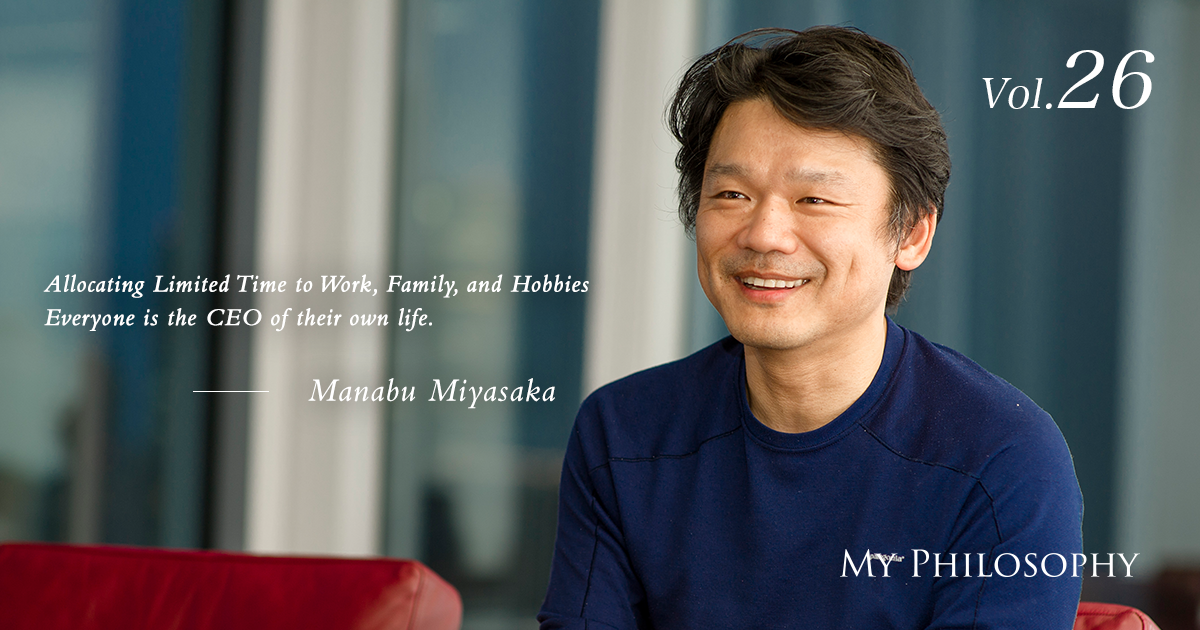
Two years ago, at the age of 44, Mr. Manabu Miyasaka was appointed as President, a major promotion that garnered much attention. With "explosive speed" as his slogan, he has been leading the organization with a management style that prioritizes speed. We spoke with him about his personal philosophy on work and life.
Profile
Vol.26 Manabu Miyasaka
President and CEO, Yahoo Japan Corporation
Born in 1967, Manabu Miyasaka graduated from the Faculty of Economics at Doshisha University. After graduation, he joined U.P.U. Co., Ltd., where he worked on magazines such as “Esquire Japan” and “i-D JAPAN”. In 1997, he moved to Yahoo Japan Corporation, which was in its second year of establishment. He became the Director of the Media Business Department in 2002, Executive Officer and General Manager of the Consumer Business Division in 2009, and CEO in April 2012. Since June 2012, he has been serving as the President and CEO of Yahoo Japan Corporation.
*Titles and positions are as of the interview date (February 2013).
Managing Life as “My Corporation”
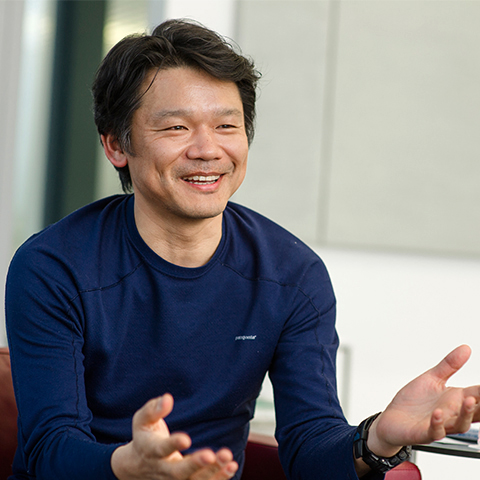
I believe humans are creatures who seek meaning in their actions. Even routine tasks become challenging without a sense of purpose, and this can lead to personal disintegration. Thus, we inevitably seek meaning. I’ve also pondered, “Why am I working?” During such a time, I read a book by the Dalai Lama and was struck by a statement on the first page: “The purpose of life is to be happy.” This resonated deeply with me. No matter how much success one achieves at work, if it leads to family breakdown, it is not worth it. One must strive for overall happiness. We work to make ourselves and those around us happy. However, life is not just about work. While work is important, there are other crucial aspects like family and hobbies.
I embrace the mindset of “My Corporation.” This means being the CEO of my own life, ensuring that my happiness is maximized. In “My Corporation,” I have different departments: the Company Division, the Family Division, and the Outdoor Division. I have loved mountain climbing since my student days; it is as essential to me as brushing my teeth, and I cannot give it up. While a company’s value is measured by market capitalization, the value of “My Corporation” is determined by the degree of happiness. If I were to eliminate the Outdoor Division, I feel my happiness capitalization would plummet. The goal is to manage everything well so that my happiness peaks at the moment of death. If my happiness peaks while I am still a CEO and then declines, it would probably feel like a major life management failure. Ideally, the peak of happiness should be right before I die. That way, I can end my life feeling that it was worthwhile. I hope for such an outcome.
Creating an Organization Where Employees Can Shine
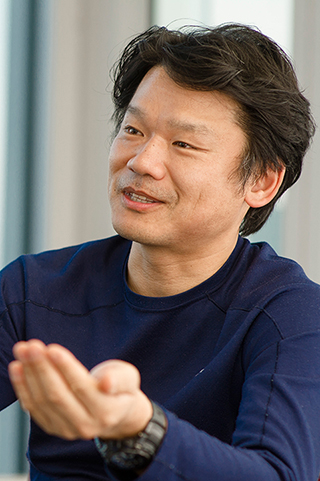
My grandfather died in battle at the age of 34. When I surpassed that age, the death of my grandfather—who had only been a photograph displayed in my grandmother’s house—suddenly felt personal. I realized that I didn’t want to die at such a young age. This realization hit me while on a plane to the United States for a business trip. I found myself sketching a scene of my own wake in a notebook, thinking about who I would want to attend and where it should be held. This reflection made me realize that if I wanted certain people to be there, I needed to invest time not just in work but also in spending time with them. Otherwise, I might end up with no friends from my hometown at my wake, only colleagues from work. This thought process reinforced my “My Corporation” philosophy.
Within the company, there may be people who lack the “My Corporation” mindset. Even if someone joins the company with enthusiasm, saying “I’ll do my best!” during the interview, they may lose motivation over the course of their long career due to tough experiences. Some people might lose interest in their work and prioritize their private lives. That’s their personal style, and I think it’s perfectly fine. However, I aim to create an organization where everyone can work with the same sparkling enthusiasm they had during the entrance exam, without having to endure unhappy experiences.
Nurturing the Next Generation
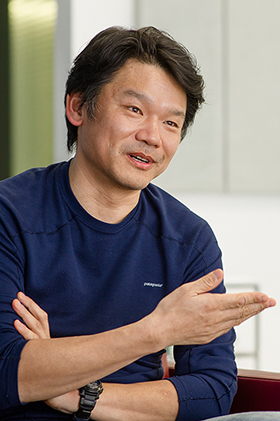
One of my responsibilities is to nurture the next generation of leaders, specifically aiming to develop a CEO by the age of 40. In the global context, many IT-related companies are led by CEOs in their 30s, so at 44, I was not particularly young when I became CEO. To produce a CEO by the age of 40, we have 18 years from their university graduation. We must plan backward from this goal, determining what experiences they need during this period. Instead of waiting for potential next leaders to emerge, we must proactively identify and develop them to improve our chances.
The ideal candidate for a CEO is someone who maintains a high focus on work throughout their life career. Conversely, if someone who does not prioritize work becomes a CEO, it could lead to unhappiness for them and those around them. Additionally, it’s better for the next CEO to be someone whom others want to see in that role, rather than someone who simply wants it for themselves.
For myself, I treat each year as a critical period. I’m always prepared to step down promptly if it’s deemed time for a change. Part of this preparation involves nurturing the next generation of leaders, which I see as my responsibility. Being a CEO involves numerous challenges, but these experiences are like a whetstone—they sharpen you. One cannot grow by only doing easy tasks; some roughness is necessary for polishing.
When I was offered the CEO position, I considered turning it down to start my own business. I chose the more challenging path, but thanks to the hard work of all our employees, we have achieved positive results so far, and I have gained valuable experience.
Making Decisions and Taking Action
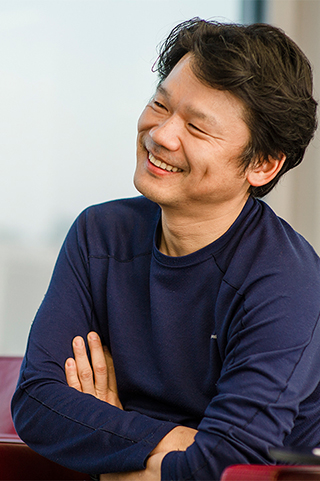
In both management and life, it’s essential to stay true to yourself. If you act in ways that are not authentic to who you are, you might feel good when things go well, but you’ll regret it when they don’t. Staying true to oneself becomes increasingly difficult with age, but I strive to maintain my personal integrity as much as possible. Another important principle is “Choice, not Assignment.” Everyone is the CEO of “My Corporation” or “Your Corporation.” Therefore, it’s crucial to always make your own decisions.
For example, on a day when heavy snow was clearly going to stop the trains, I thought everyone should leave work early. However, employees said they couldn’t go home without orders from the company. Instead of waiting for instructions from others, they should decide for themselves whether to leave. This applies to their entire careers; I want people to make various decisions on their own.
Whether you choose to focus intensely on work or balance work with childcare or eldercare, it’s a choice. In an organization of 6,000 people, it’s impossible for everyone to work relentlessly. That would make for a small-minded organization. It’s perfectly fine for individuals to vary the weight they give to their work time. Some may decide to work hard one year and then slow down when they have a newborn baby. Each person should make their own decisions and strive to do their best within those choices.
Maintaining a balance between being true to oneself and making autonomous decisions allows individuals to live fulfilling lives and contribute meaningfully to the organization.


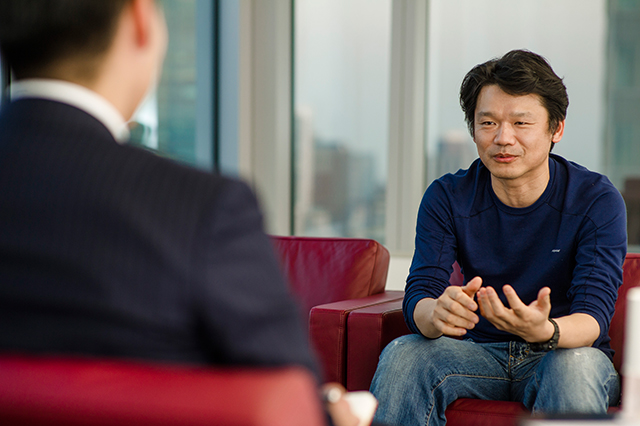
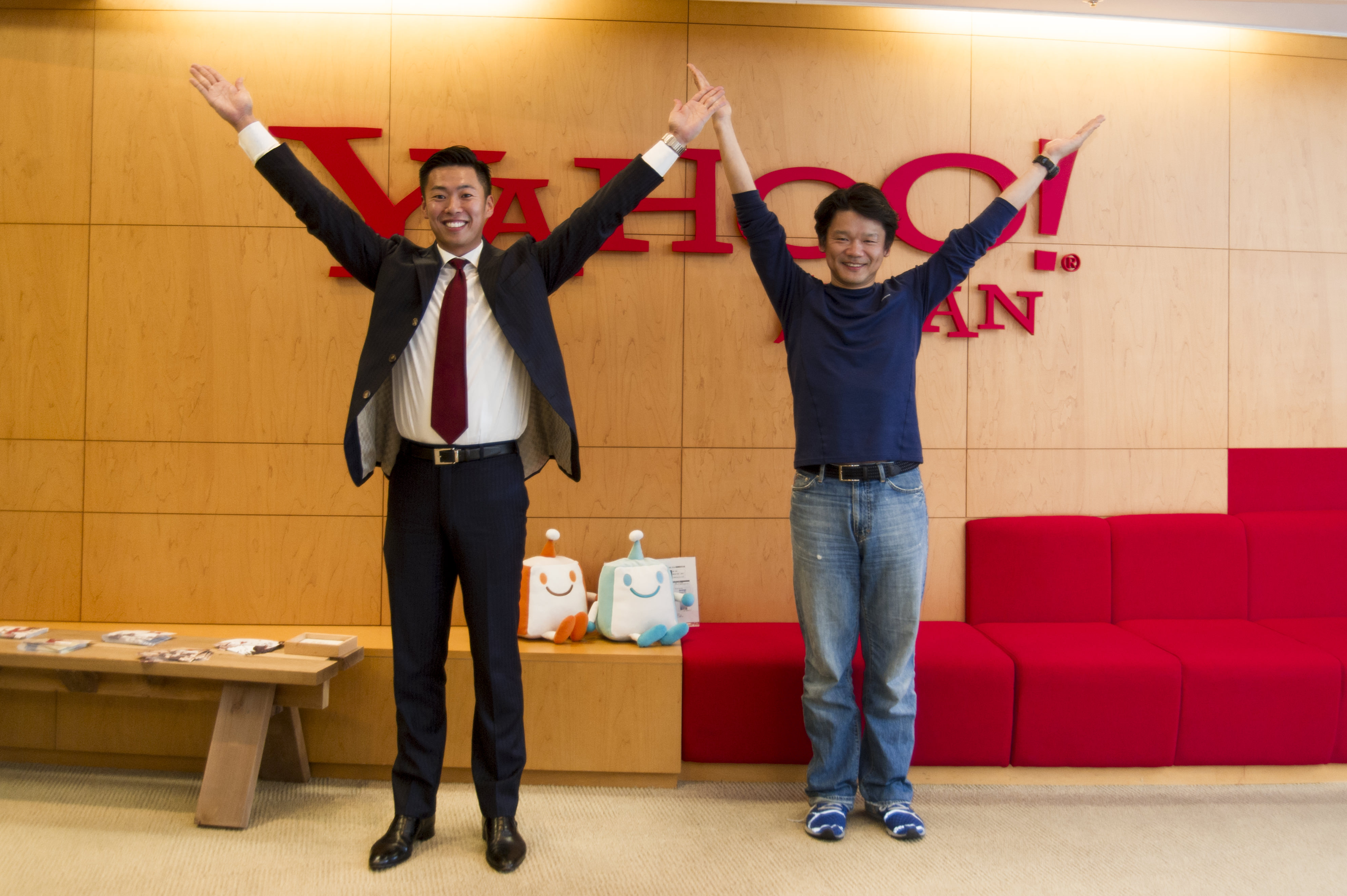
I deeply resonate with Mr. Miyasaka’s concept of “My Corporation.” It underscores the importance of balance in life. As someone in a managerial position, he reflects on his actions through the lens of “market capitalization” and acts accordingly. This approach is about not being satisfied with the status quo and always thinking one step ahead, so that when you look back, you see the results.
Hearing about Yahoo’s new management team and their “explosive speed” business strategy has reinvigorated our own company. This year, Sugiyama Daisuke Corporation will undertake several challenges, but we will always consider the overall balance. Our goal is to maintain an aggressive stance so that our market capitalization increases every year.
February 2014, at Yahoo Japan Corporation. Editing: Naomi Kusuda. Photography: Daiki Ayuzawa






























































































































